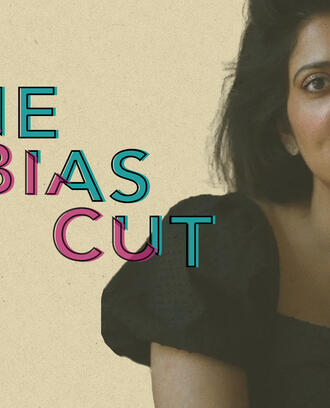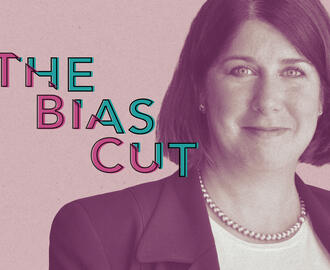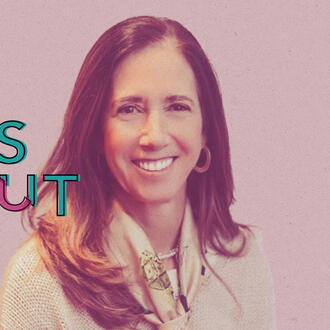This VP of transformation has a 4-point plan to uplift all employees
By
A 2022 women’s leadership study from LeanIn.org and McKinsey & Co. found that American women held 40% of corporate management positions, and women continue to fight underrepresentation when it comes to board positions and CEO roles. They also face gender bias, harassment, and opposition to their management styles.
Here’s how one MIT alumna has pushed back on those statistics and used what she’s learned along the way to help those behind her.
Patricia (formerly Lopes) Hargil, SM ’98, vice president of transformation, and diversity and inclusion officer, Messer Americas, a branch of industrial gas company Messer
In what ways is your professional life as a woman in the workplace different from how you imagined it would be when you started your career?
My career was not linear; it kept evolving as I was exposed to different experiences. I started as an engineer because I was interested in design, then moved from engineer to manager because engineering exposed me to business. I fell in love with management consulting and quality management; studied leadership, business development, strategy, and technology at MIT Sloan; and worked in corporate strategy. Over time, personal development came into play, and voilà: I focus on business transformation (diversity and inclusion, sustainability, continuous improvement, etc.).
Who has been an ally or mentor for you as you’ve navigated your career? What made that person stand out, and how specifically did they help you get to the next level of your professional development?
One person was key to my first promotion as a new manager in early 2000. Cindy Christy was then a vice president in the Lucent wireless division. She believed in me through hearing from my supervisor Joe Lourenco (a director on the Latin America team). As a young woman, it took me a while to understand my unique value. Cindy and Joe saw it way ahead of me. That helped me know myself and build confidence and gave me the energy to keep developing my leadership skills.
Can you give an example of a time you’ve experienced or witnessed gender bias? How did it affect you professionally? What impact did it have on your job?
Early in my career as an engineer and then as a business consultant, I wasn’t taken seriously because of my gender, age, or both. As an engineer, I was challenged for being the first woman in many of the jobs I took and had to stand my ground and be firm with people. Acting with integrity, demonstrating commitment, not taking things personally, and being incredibly persistent with the support of colleagues who had my back were key to overcoming this bias.
Then the second kind of bias was as a Latin woman. Not all Latin people look a certain way, dress a certain way, or have the same ways of thinking or speaking. My last name prior to marriage was Lopes. Many of the career opportunities I had were working with Latin America. But at some point in my career, that was not my interest any longer. When I changed jobs in 2015, I had a very clear discussion with my hiring manager about not being pigeonholed. That conversation was critical for me to trust that the company was ready to have me.
How do you support women coming up behind you?
A better question is how we support people coming up behind us. We need to focus on all diversity, because if we focus on gender only, we will make the same mistakes of an already biased culture. The skills to uplift women are the skills to uplift people.
Here are some things I personally try to do:
- Increase the number of people in my circle who do not dress like me, do not think like me, who were not brought up in the same religion, country, political affiliation as me.
- Ensure I meet people where they are without forcing a point of view. Listen deeply, give myself and people space to give and receive feedback, and try to understand positive intent.
- Ensure I am a visible leader and an active bystander or supporter. Are people bad- mouthing someone because they are quirky? Because they are loud or different? Call it out. Bring forward and appreciate the great things others are doing.
- Develop myself and people around me. Ensure people get feedback and have a chance to develop themselves. It is not about being nice; it is about being kind and effective at the same time. Teaching, coaching, and working in partnership with others are key for me.
What is the most difficult lesson you’ve learned in your professional life? In what unexpected ways did you grow from it?
It was not until becoming more mature, going through a divorce, and other life tribulations that I really understood the need to pace myself, to work in partnership with myself and others. When do we give ourselves time, and when do we push? That is the billion-dollar question, and it is not a one-size-fits-all or a one-and-done deal. It requires soul-searching and personal development. Exploring this question made me a more humble, patient, and kinder human being.
What’s one specific way you tend to your well-being, and how do you encourage well-being among your staff?
I practice the SKY breath meditation daily, taught by the Art of Living Foundation. Last year I took classes with the IFS Institute and there I was: an engineer and business leader among therapists and psychologists learning more about being human.
I am a demanding leader, but I know a car does not run on an empty tank. I cannot be my best self and bring my best game when I am not taking care of my well-being. And it is the same for my staff. I encourage them to pursue what nurtures them and to take care of themselves.
What’s one skill or behavior women can adopt to make their career path more successful and more manageable?
Succeeding is not an individual accomplishment but the result of bringing together a strong team who works well together, gives people space when needed, and pushes hard when necessary. Showing that we care about the business and that we care about the people making a business great: These two things need to come together.
Also, letting go of perfectionism and the need to overachieve all the time. Because of our gender we may have had to prove ourselves. That may have led to success, but we need to step back and understand what is value-add and critical versus what is our perfectionist nature at play. An easy measure for this is asking yourself, “Am I happy right now?” or, “Am I enjoying my life?” If the answer is no, get a buddy, a coach, or a therapist.
Read next: How this clean tech exec connects climate to gender equity



